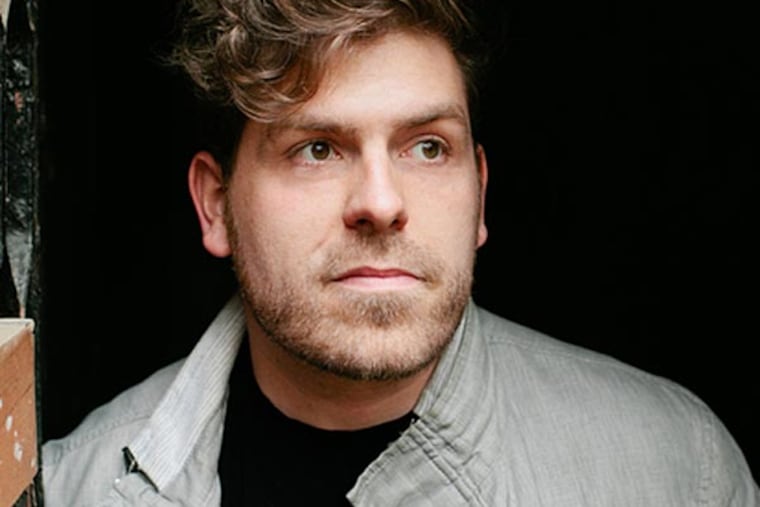Month of Moderns' first is a quirky gathering
Time and again at the opening concert of the Crossing choir's "Month of Moderns Festival" Sunday, one asked, "Where did they find that?" Of course, some of the music is commissioned, such as Ted Hearne's Sound From the Bench. Less easy to account for was the 1975 As I Crossed a Bridge of Dreams by little-known Australian composer Anne Boyd. It's a great find.

Time and again at the opening concert of the Crossing choir's "Month of Moderns Festival" Sunday, one asked, "Where did they find that?" Of course, some of the music is commissioned, such as Ted Hearne's Sound From the Bench. Less easy to account for was the 1975 As I Crossed a Bridge of Dreams by little-known Australian composer Anne Boyd. It's a great find.
Based on poetic accounts of dreams from an 11th-century Japanese noblewoman, Bridge of Dreams has no words, just a series of gradually unfolding chords spelled out with deliberation, never going the direction your ear expects (even by Debussy standards) and always with a strong undertow in the lower voices.
Overall, the concert at the Presbyterian Church of Chestnut Hill was challenging by the Crossing's standards, though director Donald Nally sequenced leitmotifs that ran through the program: Counterpoint came in the form of contrasting background and foreground effects (background being a distant voice of indistinct origin). Michael Gordon's He Saw a Skull was full of downward glissandos, in contrast to upward glissandos in Boyd's dreamscape.
Not everything had immediately clear expressive intent. Harold Meltzer's two-part Pacific Beach was half wonderful (the second half). And as much as I admire Gordon, this piece bounced off. Of course, composers aren't always out to make a piece coalesce into a grand statement. In Sound From the Bench, Hearne confronted big-picture issues with a huge variety of ideas bumping into each other.
This meditation about the Citizens United Supreme Court decision establishing the concept of "corporate personhood" had two movements drawn from a ventriloquist's handbook, a metaphor for deceptive, secondhand communication. A hidden variation on that was a quote, heard by some, of a 16th-century Pentecost responsory by Thomas Tallis in which the Apostles speak in tongues.
Musically, two electric guitarists and a percussionist resembled emergency alarms, often with a vocal obbligato that kept the piece from being merely industrial. Compelling, densely packed harmonies were served up by female voices. But any true explication of this piece will require more listenings.
After that, Gavin Bryars' Two Love Songs based on Petrarch sonnets were welcome for lacking fanciness - just pure, meditative projection of Italian texts. Without Words by Huang Ruo was exquisitely traditional, poetically and harmonically. The Crossing sang with great comprehension and typically clean, firm tone quality.
How might that sound apply to much older music? Audiences will find out in 2016: The Pew Center for Arts and Heritage announced a $200,000 grant for a project called Seven Responses, juxtaposing Buxtehude's famous Jesu Membra Nostri with newly composed works by Caroline Shaw, David T. Little, Santa Ratniece, Lewis Spratlan, Anna Thorvaldsdottir, Hans Thomalla, and Pelle Gudmundsen-Holmgreen. Collaborating ensembles will be Quicksilver Baroque and the International Contemporary Ensemble.
The Month of Moderns Festival continues at 7 p.m. June 28 and July 12 at Crane Arts in Northern Liberties. Information: www.crossingchoir.com.